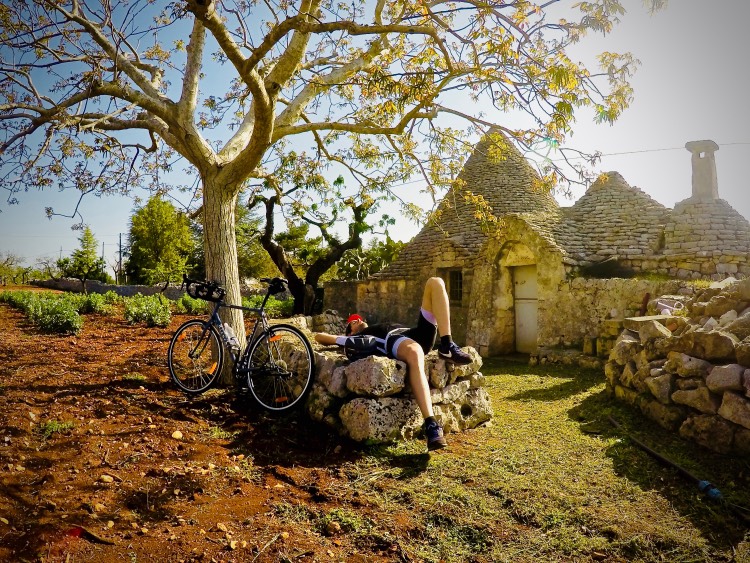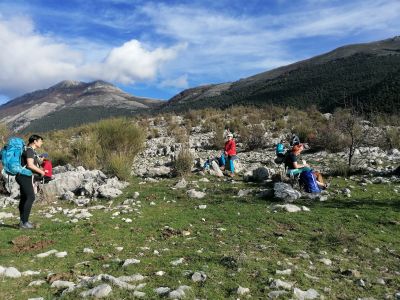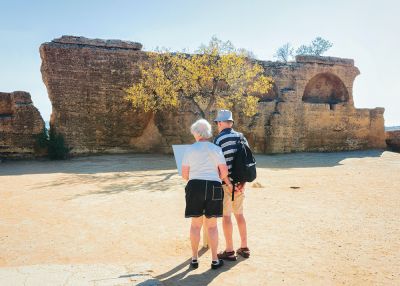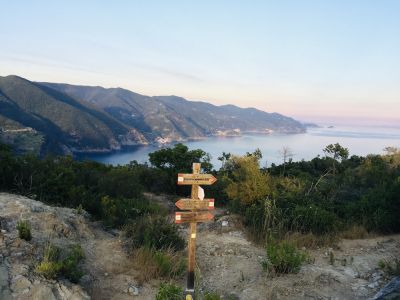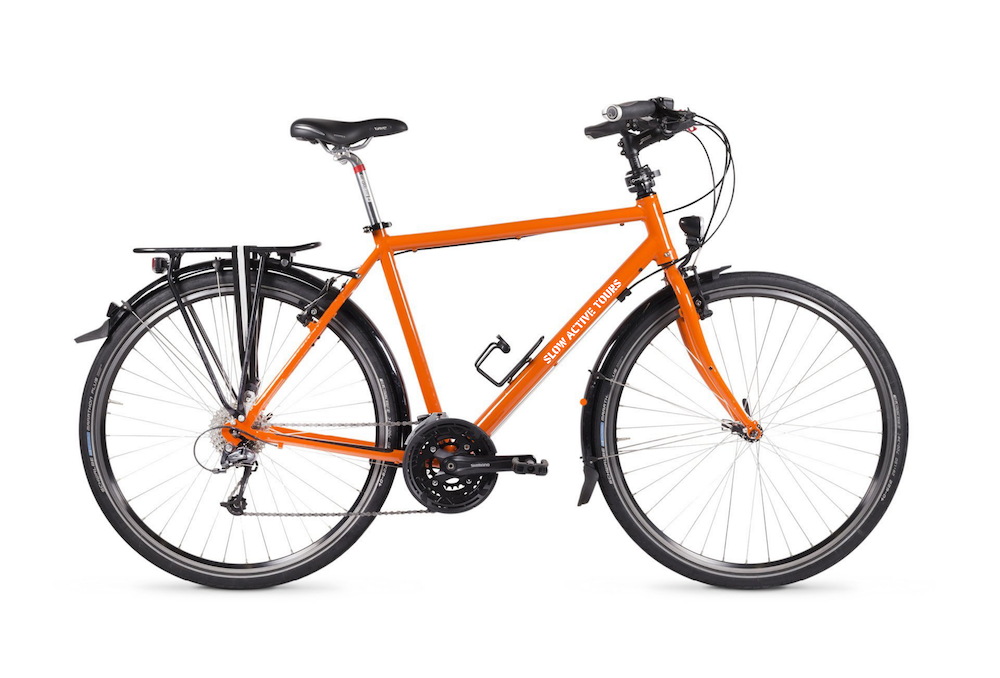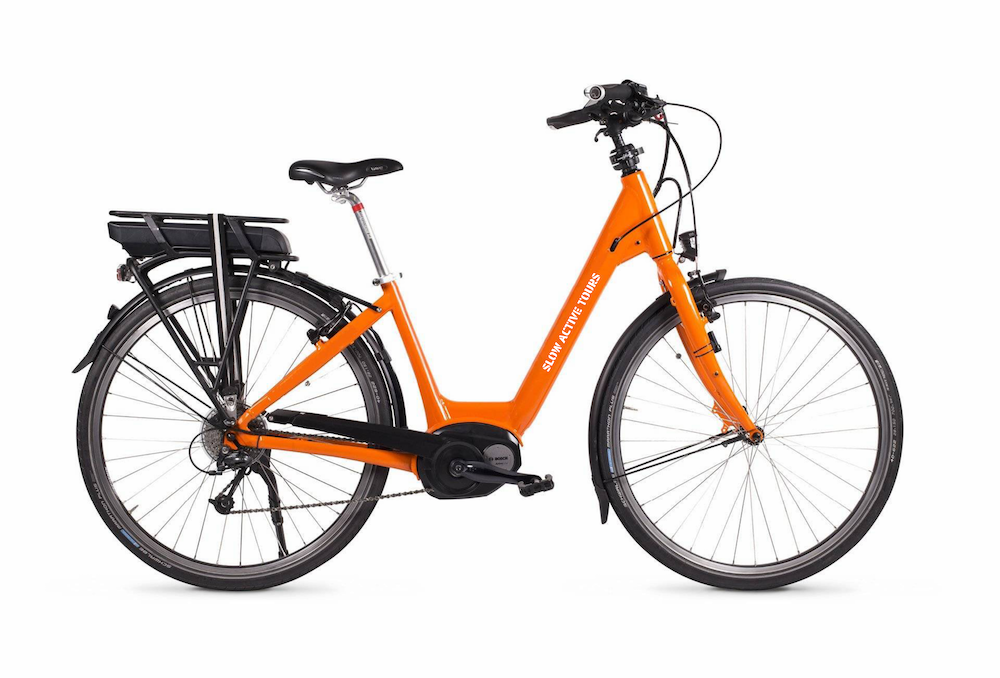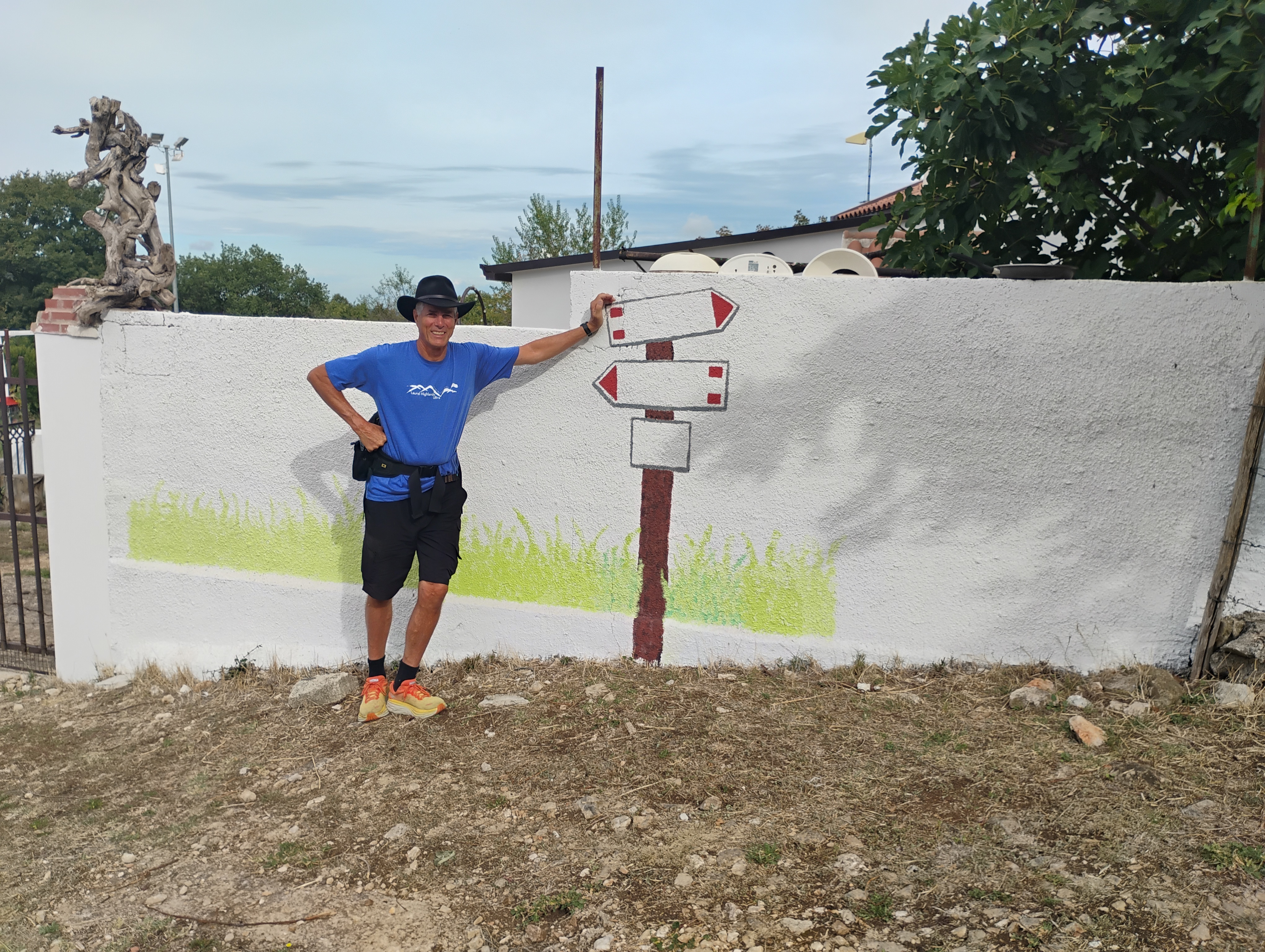It is the fundamental document of the traveler which, in a reinterpretation of what happened in the past, still allows today to have a "proof" of the accomplished feat and to have some concessions in the accommodation facilities scattered along the route of the Via Francigena.
The Pilgrim's Credential is a true Pilgrim's Passport, which not only attests to the identity and motivations of the traveler, but also represents a long line of continuity between past and present, spanning centuries of history. It's a sign of recognition that reinterprets what happened in the ancient world, when such a document enabled pilgrims to reach their destination while avoiding many dangers.
In fact, as well as the inseparable stick with a curved handle and the saddlebag, an essential travel companion for those setting out along the ancient pilgrimage routes, was also a "pass". It allowed them to cross the medieval city walls, otherwise impracticable for those who came from outside, and that gave them the right to receive hospitality in the structures that allowed them.
Driven by faith, pilgrims braved the myriad pitfalls of the route to reach the goal for which they had set out. Unlike today, people did not travel for leisure and enduring so many days away from their commitments was not within everyone's reach.
A millennial travel story
The history of the Via Francigena began in 990 when the Archbishop of Canterbury, Sigeric, decided to write down in a notebook each stage of the journey from Rome to his home. He paved the way for the faithful and travelers who over the years wanted to follow his route, although it was not the first example of its kind.
It is well known that in the ancient world it was customary to face long journeys on foot to the Holy See in Rome, which is why these routes are still known today as the Vie Romee.
It is therefore still possible today to relive the emotions and sensations of this incredible journey by tracing the path taken on the pages of the Pilgrim's Credential, a modern pass designed to keep alive the spirit of solidarity of the ancient pilgrims.
Along these same pilgrimage routes, time seems to have stopped, preserving the emotions and scents of a very ancient and important itinerary of the Christian world.
Officially completed with the southern itinerary that leads from Rome down to Puglia, the Via Francigena is definitely a route to be experienced at least once in a lifetime for those who love trekking adventures or simply want new experiences on the saddle of a bicycle.
Pilgrim Passport
Crossing the path and going to the accredited accommodation, you will receive a stamp to be affixed on the pages of your Pilgrim's Passport which certifies the passage along the different stages.
In addition, by covering the last 100km on foot, or the last 200km by bicycle, you are entitled to receive the "Testimonium", that is the document that certifies the pilgrimage.
There are many itineraries that can be done on the Via Francigena: a network of paths, roads and avenues, designed to connect sanctuaries and sacred places that intertwine and wind along the old continent for hundreds of kilometers.
Those who arrived in the Eternal City often continued towards Puglia, following the road system traced by the ancient Romans, to reach the Sanctuary of San Michele Arcangelo or to Brindisi, through the Via Appia, to go as far as the east.
Others, on the other hand, chose to continue towards the Finibus Terrae, the name with which the Latins indicated Santa Maria di Leuca, the last strip of land before embarking towards Jerusalem.
The arrival in the Holy Land represented the end of a journey that still today continues to connect different peoples and cultures, also through the Pilgrim's Credential.
Slow Active Tours in the Via Francigena network
As a Tour Operator specialized in active holidays, we believe in this project to enhance our territory and we also offer the possibility of personalizing your trip to enjoy the ancient routes of the Via Francigena in total serenity.
Those who choose one of our packages, to travel it by bike or on foot, can in fact request the luggage transport service along the entire Apulian route.
Here are our itineraries along the Via Francigena:
⇒ The Via Francigena in Tuscany: from Lucca to Siena
⇒ The whole Via Francigena del Sud: from Rome to Leuca
⇒ The southern Via Francigena
⇒ Via Francigena from Siena to Montefiascone
⇒ Last 100km of Via Francigena walking holiday
On foot, by bicycle, for those who love adventures in groups or for those who prefer to travel alone, the important thing will be to have the Pilgrim's Credential, spirit of adaptation and passion for an active holiday that goes far beyond the definition of tourism!
Request your credential by filling out our form or calling our office on +39 0832 1826868 and come and visit us in Lecce in Via Corrado Alvaro, 17 /A.
And if you choose one of our tours, in the package you will find together with the Pilgrim's Passport, our very useful Travel App containing maps, tracks and all the information on the itinerary to follow and the goodies to visit, so as not to miss anything of your adventure along the ancient Via Francigena.




